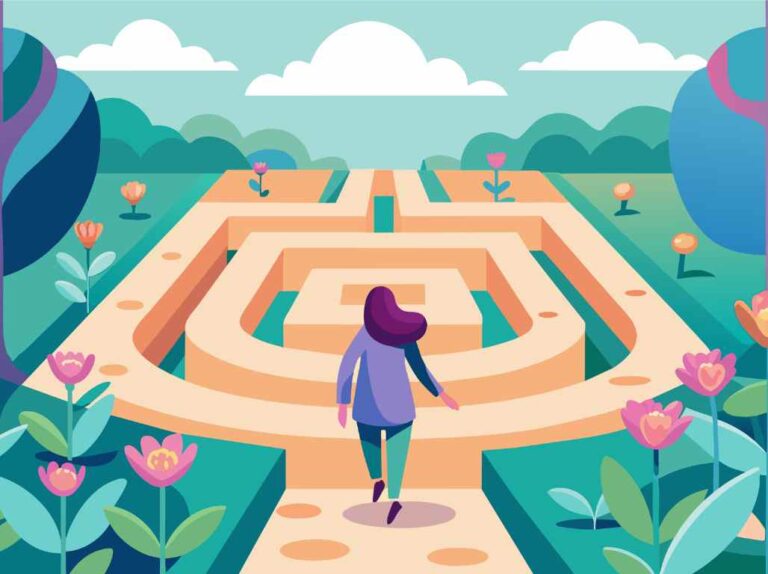Ketamine recovery is more than just stopping us. You know that substance addiction can take a drastic toll on your physical and mental health. It also has adverse effects on relationships, work, personal goals, and more.
Much like any other addictive substance, ketamine addiction can be tough to overcome without the assistance of professional intervention. However, there are many tips and steps that one can take towards building a life of sobriety and optimizing ketamine recovery.
Here are 10 tips you can use to optimize your recovery process, whether or not you’re already in ketamine addiction treatment.
Ketamine Recovery 1. Acknowledge the Problem
As many people say, the first step towards recovery is admitting that you have a problem. Acknowledging and accepting the idea that you’re dependent is key towards progress because it can help you not only become more proactive in your recovery, but it can also pave the way towards opening up and communicating your unique needs with other people.
Admitting can also be cathartic, as you can proceed with recovery rather than lying to yourself and other people.
Unfortunately, many people are aware of their negative substance addiction habits, but will either deny their problem or turn a blind eye to the health effects that they’re experiencing.
Self-awareness is key towards healing. Some readers may be on this page because you know that you have an addiction problem. Others may know that they’re suffering from an addiction, but they’re too afraid to say it aloud or accept their condition.
Ketamine Recovery 2. Get Professional Help for Ketamine Addiction
Before taking addiction recovery into your own hands, you need to seek professional guidance to optimise your chances and quality of recovery. Seeking professional guidance, whether as an inpatient or an outpatient, will grant your expert insight from addiction specialists and a carefully personalized recovery plan.
It cannot be stressed enough that you should seek professional guidance. Taking it upon yourself to recover from addiction is possible, but if you suffer from a moderate to severe form of addiction, it will likely lead to a relapse or even worse. It is not uncommon that those who try to recover independently suffer from health complications, such as seizures that can even lead to fatality.
At a ketamine rehab clinic, you’ll benefit from:
- A detox programme
- Medically supported facilities
- Therapy & counselling
- An aftercare programme
Patients need a combination of medical and psychological support when recovering from addiction. A detox programme will help patients overcome discomforting withdrawal symptoms, whereas psychological and social care will help them establish long-lasting recovery habits.
Ketamine Recovery 3. Build a Strong Support System
In addition to the professional support system you’ll benefit from when you undergo addiction treatment at a drug and alcohol rehab, you’ll need to have a strong support system at home.
Here’s how you can create a strong support network in your home and local community:
- Family: Family members can help form a powerful and formidable support network. Once you communicate your unique needs and the complexities of addiction to your family, they can proceed to create a more hospitable recovery environment. Family therapy and counselling in particular can help improve levels of communication between patients and family members.
- Friends: Similar to your family members, friends can also help reinforce your support network. By accommodating to your needs and being aware of any relapse triggers that may cause a relapse, your friends can be an excellent source of support throughout recovery.
- Self-help groups: Finding a local self-help or non-profit group can provide invaluable support and inspiration. Common examples include but aren’t limited to Alcoholics Anonymous, Narcotics Anonymous, and SMART Recovery. These groups provide a built-in support network where you can attend support sessions and benefit from positive social reinforcement through online or in-person meetings.
It’s also important to note that while your support network is there to help you whenever it can, you still need to stay accountable for your decisions. While relapsing is common among recovering patients, it’s important that members of your support network learn and understand not to “support” you in a way that actually enables your addiction.
Ketamine Recovery 4. Know The Relapse Triggers
Consuming drugs such as ketamine can be a response to a number of triggers. While many people will consume ketamine out of boredom or intrigue, there may be more to their desire to consume drugs.
Often, people who fall into addiction are suffering from unstable living conditions or mental health issues and are finding a way to self-medicate. Because of this, it’s important to be aware of these issues in order to recover fully and ward off relapse triggers.
Here are some of the most common relapse triggers faced throughout addiction recover:
- Emotional triggers: One of the most common reasons for relapsing is experiencing intense negative emotions, whether it be sadness or anger. When people are faced with intense emotional stress, they often turn towards drugs, whether ketamine, alcohol, or other, in order to self-medicate and relieve themselves of these negative symptoms.
- Environmental triggers: Environmental triggers can come in the form of being in an environment that has an adverse effect on your mental health. A poor living or home environment is often the cause of excessive drug or alcohol consumption, especially if these habits are encouraged here.
- Social triggers: Social triggers are similar to environmental triggers, but concern more about who you are sharing the environment with. Social triggers can come in the form of going to a location where drugs and alcohol are consumed, such as a party or a nightclub. If a person is suffering from peer pressure or social isolation, it may lead to a relapse.
Ketamine Recovery 5. Manage Cravings Safely
To manage cravings safely, you’ll need to learn about them first. Consider learning about HALT – which is an effective self-assessment and relapse prevention tool. The acronym stands for Hungry, Angry, Lonely, Tired.
Developing the necessary coping mechanisms will go a long way in sustaining your sobriety and building a better life. Common coping mechanisms in the face of relapse triggers include:
- Breathing exercises
- Meditation
- Exercise
- Journaling
Ketamine Recovery 6. Prioritize Mental Health
Mental health is paramount when recovering from addiction. Often, addiction is caused by mental health issues such as anxiety or depression, and ketamine addiction and mental disorders have a mutually destructive relationship.
Popular therapies at a ketamine rehab such as Cognitive Behavioural Therapy and Dialectical Behaviour Therapy can help you recover or manage from mental health issues. Not only do they help you develop coping mechanisms, they help you manifest a healthier lifestyle.
Ketamine Recovery 7. Create Healthy and Holistic Routines
Self-care doesn’t have to be expensive. To further support your quest for improved mental health, you need to go back to basics. That means, improving your physical, mental, and spiritual health through fundamental means, including but not limited to:
- Regular
- High sleep quality
- High-quality nutrition
While it is frequently echoed that focusing on these three pillars will lead to a better quality of life, it isn’t without good reason. Improving your quality of foods, sleep, and exercise will greatly improve your mood, cognitive function, cardiovascular health, and more. You’ll not only feel healthier, but this improved health will help you build momentum to making positive and health-conscious choices in the future.
Ketamine Recovery 8. Consider Holistic Therapy
Holistic therapy is a common addiction at ketamine rehab, and it is unique because it doesn’t focus on communication or behavioral issues like many other forms. Instead, it simultaneously focuses on the mind, body, and spirit. Holistic therapy is varied and can be highly personalized, and popular forms of holistic therapy include but aren’t limited to:
- Adventure therapy
- Equine therapy
- Music therapy
- Art therapy
- Yoga & meditation
While art and music therapy can help patients externalise emotions in an artistic way, adventure therapy and yoga can help patients improve their physical health in natural or controlled settings.
Ketamine Recovery 9. Ketamine Recovery Takes Time
It’s important that you recognize that ketamine addiction recovery isn’t achieved overnight. Even after you overcome the initial withdrawal symptoms, there’s a lifelong journey ahead.
Independent recovery often fails because people don’t realise that it is a lifelong journey rather than a fight of attrition for a few days or a few weeks. Quitting “cold turkey” might mean that the substances exit your system, but if you don’t change your behavioral habits and thought processes – and fundamentally change your lifestyle – then you’re likely to relapse.
Ketamine Recovery 10. Celebrate Small Wins
Ketamine addiction recovery isn’t achieved overnight. It’s important that you don’t develop an “all or nothing” mentality that doesn’t let you celebrate small wins.
Celebrating small wins can help you feel accomplished about your recovery journey, regardless of the milestone. Whether it’s another day, week, or month without relapsing, or you successfully complete your scheduled bouts of exercise, celebrating small wins isn’t just “rewarding yourself” but it manifests positive reinforcement that propels you forward.
Start Your Recovery Journey Today
Ketamine addiction isn’t an overnight battle, and it isn’t as simple as quitting cold turkey. You need to seek professional guidance and establish a formidable support network through friends, family members, and self-help groups. Reach out to an addiction treatment specialist today to start your lifelong recovery journey.
More Articles To Read
Mother-Daughter Relationship Assessment: Take The Quiz
Mother-Daughter Relationship Assessment: Take The Quiz
Dealing With Addiction Issues: Why You Should Go To A Rehab
Tips To Celebrate Milestones In Recovery





















